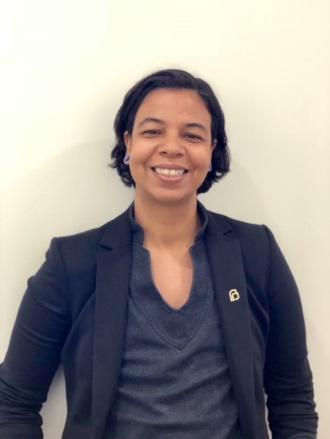The term Reproductive Justice was born here in Chicago in the 1990’s at a conference on reproductive health. Very few Black people and people of color attended the event. Those who did, were very aware that, in the overwhelming white space, the needs of marginalized communities were not being addressed. The few Black women attending the event decided to meet in the evening to discuss what was missing. Working with Black femminst theory as a foundation, the group blended “reproductive rights” and “social justice,” to coin the new term “Reproductive Justice.”
The Reproductive Justice framework addresses the lack of bodily autonomy in marginalized communities. It asserts the right to decide if, when, and how to give birth, the right to prevent or end a pregnancy, and the right to parent in a safe environment.
Ross was among that group of women who created the Reproductive Justice framework in Chicago. As a sexual assult and rape survivor, she dedicated her career to activism starting in the 1970’s. She has fought for sexual assault survivors, championed Women of Color Programs within the Feminist Movement, and was the co-founder of Sister Song: a Reproductive Justice organization. Ross is still an active agitator, has helped organize national marches, and has written several books including “Reproductive Justice: An Introduction” and “Undivided Rights: Women of Color Organize for Reproductive Justice.”
Ross often speaks about health outcomes in the Black community and how they are related to racism. Structural racism and implicit biases have a powerful impact on health care experiences for Black people. Black communities often have less access to health care and education on prevention. These inequities often result in delayed diagnoses, higher rates of STIs––including HIV––and increased mortality rates for breast cancer and maternal health for Black women. We cannot talk about health outcomes without talking about structural racism.
Attacks on reproductive health care often affect Black communities the most. We are thankful to have women like Loretta Ross leading this fight and we should all take a role in activism.
Planned Parenthood’s Black Organizing Program focuses on uplifting those whose rights are most vulnerable, highlighting the importance of Black voices in the movement for reproductive health and rights overall. We provide sex education that is inclusive, medically accurate, and culturally relevant to the communities served. We are committed to decreasing barriers that keep people from care, increasing education to help people make the best decisions for their bodies, and eliminating stigma.
Join the fight by speaking up for reproductive rights for everyone. Talk about reproductive health and justice with your friends and family. Finally, take time for self-care, including preventative medicine by scheduling a well person visit at Planned Parenthood. If travel or payment is keeping you or someone you know from care, let us know. You can make an appointment online at www.ppil.org or call 1800-230-7526 to find a health center near you.


